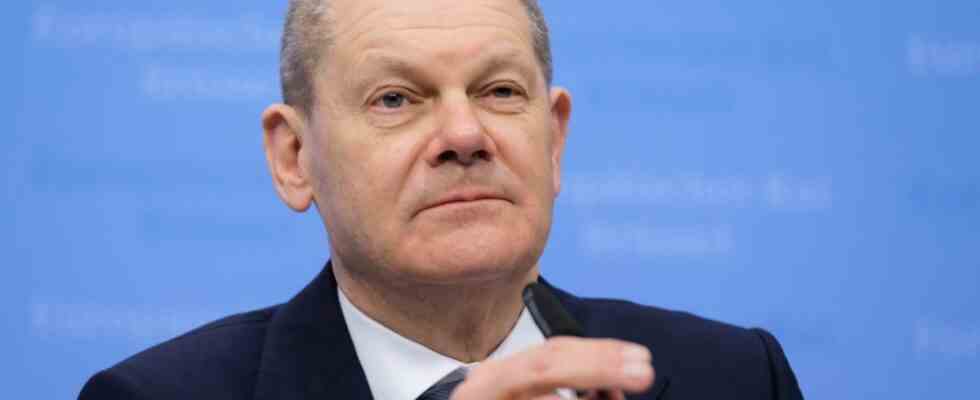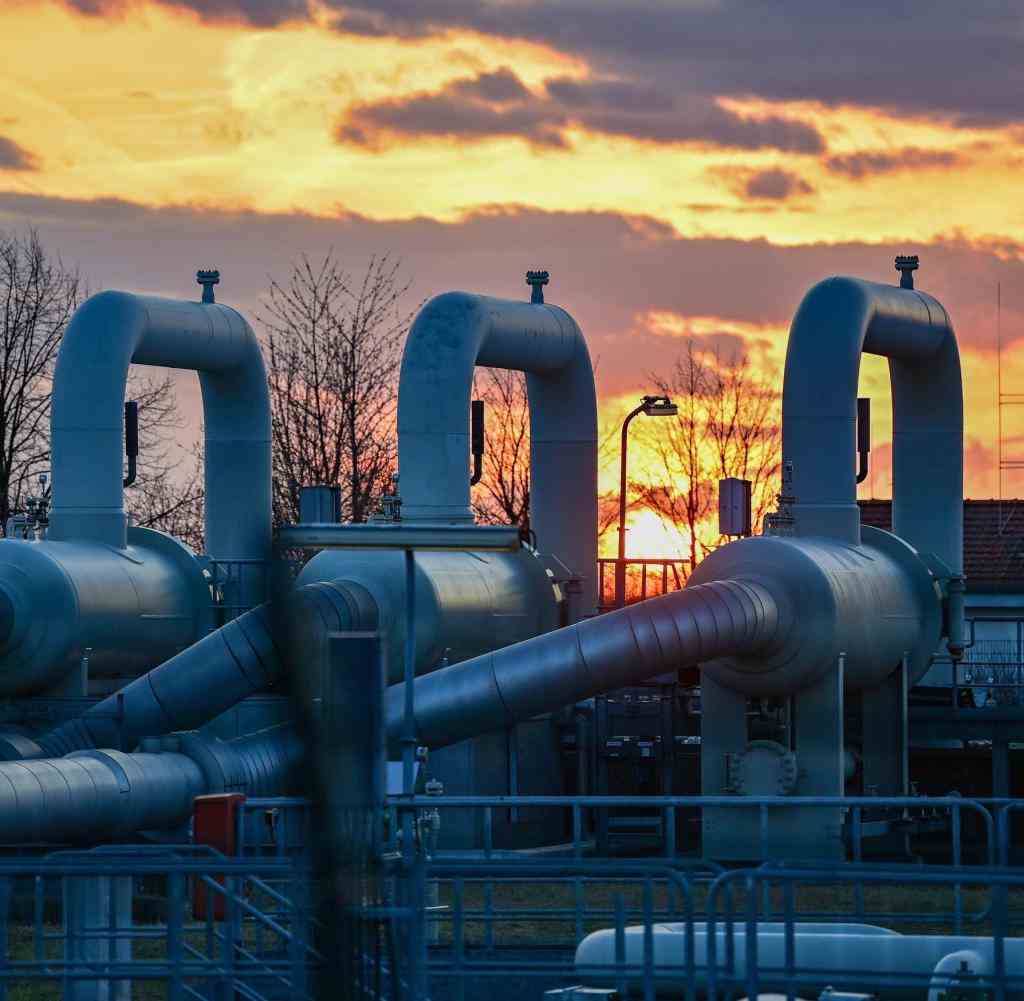According to the federal government, Putin assures Scholz of gas payments in euros
Economics Minister Habeck announces the early warning level of the gas emergency plan
According to the Kremlin, the conversion of payments for Russian gas deliveries to rubles will take some time. Meanwhile, the federal government is preparing for a deterioration in the gas supply. Economics Minister Habeck has therefore now proclaimed the early warning level of the gas emergency plan.
Gas deliveries to Europe should continue to be settled in euros. Kremlin boss Vladimir Putin assured Chancellor Olaf Scholz in a telephone call that payments in rubles would be necessary from April 1, but that Germany could continue to pay Gazprom Bank in euros.
RAccording to the federal government, US President Vladimir Putin has assured Chancellor Olaf Scholz (SPD) that European companies can continue to pay their bills for Russian gas in euros. In a telephone call on Wednesday, Putin said that gas deliveries would have to be paid for in rubles from April 1, explained government spokesman Steffen Hebestreit. “At the same time, he emphasized in the conversation that nothing would change for the European contractual partners.”
The payments should therefore continue to be transferred exclusively in euros to the Gazprom Bank, which is not affected by sanctions. “The bank will then convert the money into rubles,” Hebestreit quoted the Russian head of state as saying. The Kremlin made similar statements after the call.
The Kremlin said the decision should not “lead to a worsening of contract terms for European importers of Russian gas.” Putin justified the conversion from euros or dollars to rubles by saying “that the foreign exchange reserves of the Bank of Russia were frozen by the member states of the European Union in violation of the norms of international law”. This was the EU’s reaction to Russia’s war against Ukraine.
Federal Economics Minister Robert Habeck said on RTL that he was skeptical as to whether Russia would actually continue to accept payments for gas deliveries in euros. It remains to be seen how the Putin government will flesh out its threat in a law on Thursday. “Only then will we know exactly what that means, whether the statements of yesterday and those of today contradict each other or whether it is all just a communicative error.”
The Office of the President previously stated that the requested payments in rubles would not be implemented immediately. The transition should be gradual. The dollar as a global reserve currency has had its day, so payments in the respective national currencies are unavoidable.
Instruction for ruble payments not valid from Thursday
Gas delivery and payment are separate processes, Kremlin spokesman Dmitry Peskov said on Wednesday. Putin’s instruction to switch to ruble payments is not yet valid for this Thursday. Putin wants to meet with representatives of the Russian gas giant Gazprom and the central bank on the day to be informed about the current state of affairs.
The announced meeting and the refusal of Western countries to switch to the ruble had sparked fears in Europe that Russia could quickly shut down gas supplies. Peskow had also said that if you didn’t pay, there would be no gas; Russia is not a charity.
G 7 rejects Russian demand
The group of G-7 economic powerhouses, including Germany, as well as the European Union as a whole, reject payments in rubles for gas. Corresponding demands are “a unilateral and clear breach of the existing contracts,” said Federal Minister of Economics Robert Habeck on Monday after a meeting of the G-7 energy ministers. Germany currently chairs the group, which also includes France, Italy, Japan, Canada, the US and the UK.
On Tuesday, the EU Commission confirmed that it took the same position as the G7. Energy Commissioner Kadri Simson attended the meeting where the position was set.


